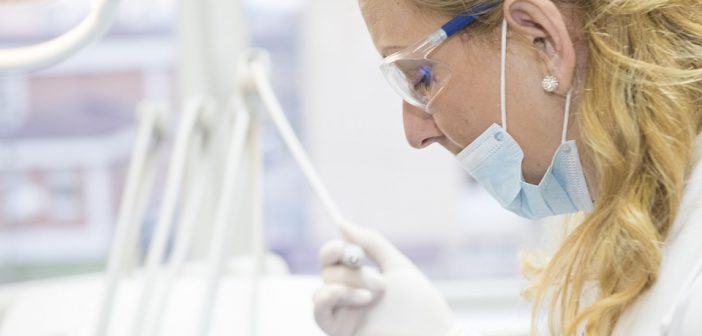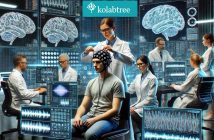Hiring a freelance DNA sequencing data analyst can be a cost-effective solution if you need to consult a qualified expert, on demand.
Direct to consumer (DTC) DNA test kits hit the markets in 2000s, enabling consumers to access their genetic information directly, without a physician’s involvement. The consumers can simply spit their saliva into a tube, sign a few papers and ship the samples to the genetic testing company. Few days later, they can view the results directly via the internet. Quite convenient!
2017 marked a boom in popularity of DTC genetic test kits with the advent of genealogy/ancestry analyses. In USA, many millennials (estimated to be 1 in 25 adults) have engaged the services of 23andMe or Ancestry.com, to know their origins. But why is it so popular? The simple answer is, it is a “trending” exercise; stemming from the “I did it because all my peers did it” mentality.
To understand the evolution of this technology, one must look at the history behind its development. Back in 2000s, the analyses were focused on type 2 diabetes, osteoporosis or BRCA1 and BRCA2 mutation tests for breast and ovarian cancers. However, a hefty price tag of $1000 per DTC panel deterred many average consumers from getting tested. By 2012, the prices had dropped significantly, ranging around $99 per panel. However, these kits constituted medical devices, but were not approved by Food and Drug Administration (FDA). In 2013, the FDA stepped in and sent out “cease and desist” letters to many of these DTC companies, as Determining disease risk is one of the functions of the DTC kits.
Disease risk determination is one of the functions of the DTC kits. Last year, FDA authorized the marketing of the first DTC test for genetic health risk (GHR, from 23 and me), for 10 conditions, including Alzheimer’s, Parkinson disease and hereditary thrombophilia. Though FDA approved, the results from these tests provide only partial information and must be taken with a grain of salt. The recent FDA approved BRCA1 mutation analysis kit from 23andme is a good example to demonstrate this. The fine print of this test states that it detects only 3 of over 1,000 known BRCA mutations. Thus, a negative result does not rule out other BRCA mutations that increase cancer risk. Many other factors – genetic and environmental, familial medical history and lifestyle choices are unaccounted for in the DTC test results. The average consumer may misinterpret the results sans the intervention of healthcare professionals. Consequently, consumers are at risk of making poor misinformed health decisions.
Ethical issues surrounding DNA test kits
So, are the DTC genetic test kits worth your money? The consumers need to understand that by signing the agreements for genetic tests, they are relinquishing powers over an extremely personal information. Once signed off, there is no going back, for the person in question, or those related to him/her. If you undertake one of these tests, indirectly you would be serving as a ‘genetic informant’, leaking the genetic information about your other relatives, who have not volunteered to relinquish their genetic information. The use of the DNA test kits raises a plethora of other ethical issues: 1) should the consumer inform their relatives while taking the test? 2) could the lead to genetic profiling of various ethnic groups, 3) should parents be allowed to subject their children to the test? 4) could insurance companies use genetic information to assess risk? If so, could people with high-risk genetic markers be subjected to higher costs and less benefits.
Data privacy for your genetic information
One might argue that you have not authorized the company to use or sell your genetic information. For example, if they request for having their bio specimen destroyed after testing. However, a peek into the full privacy statement would reveal phrases like – it would destroy the specimen only if “legal and regulatory requirements” do not require it to maintain them. Moreover, if they maintain your specimen, they retain the rights to “use the results of further analysis of your sample”. There are a lot of wordy loopholes to be wary about! Genetic testing companies can sell your test results to pharmaceutical companies or other third- parties. While the data is stripped off all identifying information, researchers have found that a comparison of these anonymous DNA data to available DNA databases could reveal names and addresses of the gene holder.
A vigilant consumer can protect their genetic information
The good news is, most DTC company websites do provide detailed information about their privacy and security practices. Now, as a consumer, it is your responsibility to read and understand all the information provided under the tabs of “privacy policy,” “privacy statement,” or “privacy center” before getting any tests started. If you do not understand any of it, please reach out to the company to clarify before agreeing to their terms. Some good questions that can help you assess a company’s privacy practices can be found here.
Currently, DTC companies for genetic tests dictate their consumer privacy policy, with some of them re-selling the genetic information. It has been speculated by many that the overarching goal of the companies, is not to make money by selling kits. Rather, once the company owns the data, it is inevitable that the company becomes the “google” of the healthcare industry. The premise that a company or group of companies could hold the power to analyze, process and distribute your genetic information should make us all wary.
It is imperative to figure out the logistics of managing the valuable and increasingly copious amounts of private biological information in data-banks. The FDA and other regulatory agencies must step in to monitor and cub this expansion of companies that provide an inexpensive product of not-so-great value, with the ulterior goal of collecting and controlling the consumer private genetic and health information.
—
Need to consult a genetics and genomics expert or a DNA sequencing data analyst ? Kolabtree helps you choose from a range of experts depending on your project requirements. Post a project and get quotes for free. Hire scientists on a freelance basis on Kolabtree.
Related experts:
Bioinformatics freelancer | Plant genetics | Developmental Biology | Gene therapy | Stem cells |
DNA sequencing data analysis |Animal genetics | Drug interactions | Genetics and Genomics







